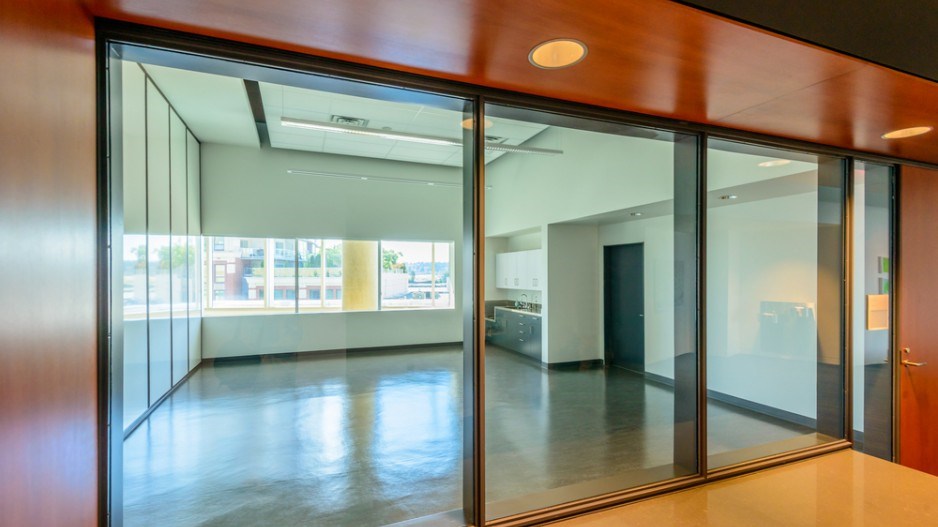For the first time in three years, the British Columbia Real Estate Association’s Commercial Leading Indicator (CLI) has decreased, indicating slowing activity in the province’s commercial real estate sector.
The CLI fell 1.5 point in the first quarter of 2018, reaching 134.2. This is a 1.1% drop compared with Q1 2017, but the index remains 3.4% higher than it was a year ago.
“The B.C. economy appears to be slowing following four years of remarkable growth,” said Brendon Ogmundson, deputy chief economist at the BCREA.
“That slowdown likely means a slight drop-off in commercial real estate activity on the horizon.”
The overall trend remains positive, however, as economic activity and employment growth have been strong over the past several quarters.
The BCREA uses the CLI to forecast changes in commercial real estate activity. It measures three components: economic activity, employment and financial indicators. The most recent data indicates Q1 was the first time in a decade in which all three of these components saw declines.
Overall economic activity in the province dropped as retail sales fell 1% in Q1, but were 4.1% higher than a year ago. Wholesale trade increased 1.9% and was up 7.2% compared with the same period last year, while manufacturing sales fell 0.3%.
Employment growth stalled in the past six months, with the number of jobs related to the commercial sector falling by around 6,800. These decreases were largely driven by declines in finance, insurance and real estate jobs.
Higher interest rates and flat REIT prices were behind declines in the financial component. The BCREA said this measure acts as an “early-warning indicator” from the financial sector that could point to upcoming changes in the commercial real estate market.
The BCREA works with 11 real estate boards across the province and represents 23,000 real estate agents.
@EmmaHampelBIV




